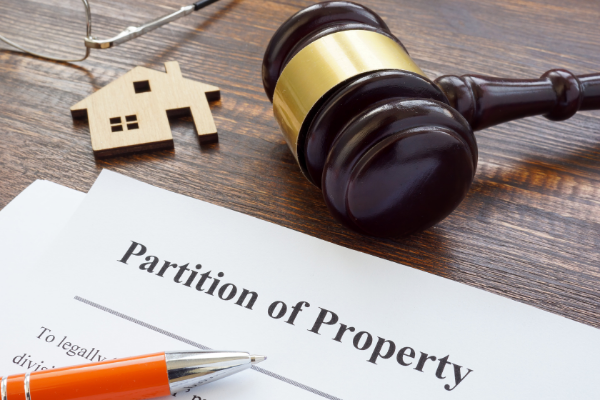Partition of Real Property in Dissolution of Marriage Actions
A marital home is a significant asset and is often the source of considerable conflict between divorcing spouses. If the spouses cannot agree on what to do with a jointly owned property in a divorce proceeding, typically the marital home, either or both parties may request that the court partition the property. Partition of real property during divorce in Florida is a unique option of last resort.
Whether you want the marital home or you’re willing to give it up, FCLC Group is ready to assist you. For guidance on how to go about handling jointly owned property during your divorce, call us at 407-757-2877.
Partition of real property is a severance of undivided and coexisting interests in real property. Under F.S. Ch. 64, a partition action may be brought by “any one or more of several joint tenants, tenants in common, or coparceners, against their cotenants, coparceners, or others interested in the lands to be divided.”
A partition action is commenced to force the sale of jointly-owned property, often real estate. Under Florida law, a co-owner of real property may file a lawsuit against the other co-owner(s) when they cannot agree on how to continue their joint ownership of the property.
Can property claimed as homestead be partitioned?
The constitutional homestead protections do not preclude the forced sale of property. Florida courts uniformly hold that homestead property is subject to partition.
Homestead protections found in the Florida constitution were enacted to protect the family home from forced sale for the debts of the owner. While homestead interests in property should be protected from a forced sale whenever possible, homestead cannot protect an owner from a forced sale at the expense of others who also own an interest in that property.
There are typically two outcomes to a Florida partition action.
First, the court may divide up the property according to each parties’ ownership interest (this is typically only feasible with large tracts of land, not a residence, as residences are normally deemed indivisible and cannot be divided without prejudice to the parties); and
Second and more commonly, the court will order the sale of the property. It is important to note that the court is empowered to order the sale of the property at a public auction, but the parties can agree to a private sale.

A public auction can be a very risky option as there is no guarantee the house will sell for a certain amount. It will only sell to the highest bidder, whatever that amount may be. Additionally, any liens or mortgages on the property will have to be satisfied from the proceeds of the sale before that money can be divided up between the co-owners. Thus, a private sale offers the maximum amount of control over the process.
Consult a Highly Renowned Orlando Family Law Firm
Divorces involving real estate can be very complicated. Therefore, it is crucial that you have an experienced Florida family law attorney representing your best interest in a divorce action where real property is involved. Contact us today to discuss your case.







